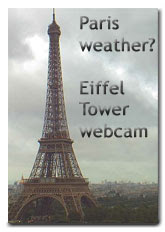.
I am listening to lectures on Marine Megafauna. I'm still waiting to have my socks blown off (as they were, so often, in Dinos, Plants, and Genetics, last fall), but a few interesting things are coming to light.
Today he put up a tree of mammalian orders, which shows that marine mammals come from entirely different lineages. Pinnipeds (seals, sea lions, walruses), otters, and polar bears are in Carnivora, with dogs and cats. Cetaceans (whales, dolphins, and porpoises) are most closely related to even-toed ungulates like cows. Dugongs and manatees are most closely related to elephants.
Ok. Several totally different land animals wended their way back into the ancestral seas, to make their livings entirely in the water. Interesting.
But here's what really caught my attention.
I thought I'd find an image of the tree of mammalian orders that was copyright-free, so I could show it to you here. (Note what I was thinking -- "the tree" -- as if there was exactly one..........)
In glancing through the images Google showed me, when I asked for "mammalian orders tree," what struck me was that none of the trees I found matched another.
Yes, my sample was small (four or five). But -- I didn't expect to see *no* duplication!
I know they are constantly arranging the ways they think everything is related. Genomics is informing this arrangement, as is to be expected. When these trees were first drawn, people were going by physical appearance (and by who could breed with whom). Now we can go by DNA..........
But still. I was surprised to see so many different charts (and no duplication!) in just a few minutes of looking.
One of the things I love about science is the intent to revise as new facts come to light. I'm presuming that's what's happening here, as what we know about who begat whom is illuminated by DNA. Along with a healthy dose of disagreement about various points (or, at least, disagreement about how much weight to give different factors)!
.
Wednesday, March 19, 2014
Subscribe to:
Post Comments (Atom)

















No comments:
Post a Comment